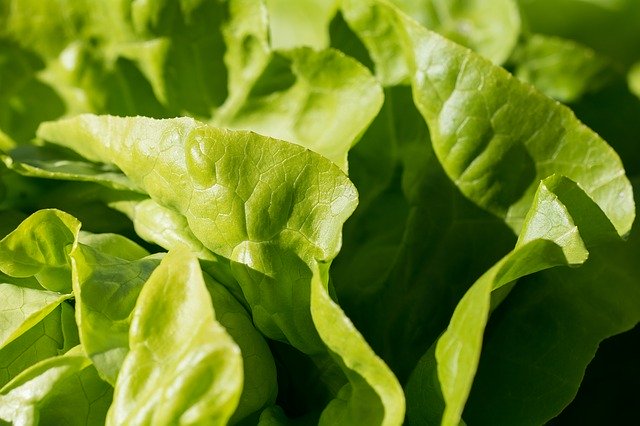


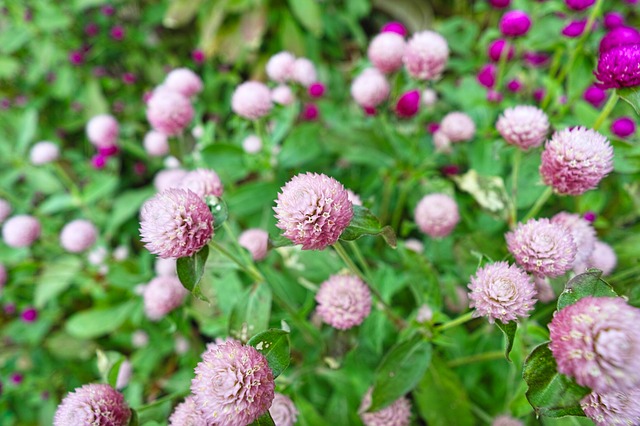

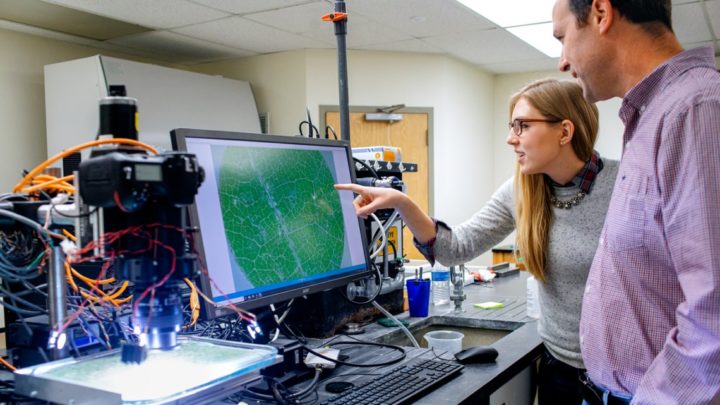
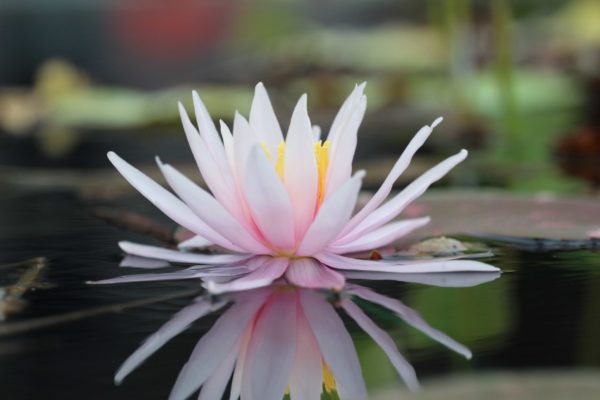

 This week we have a guest post from Chelsea Snell at Sense about Science on their upcoming event:
This week we have a guest post from Chelsea Snell at Sense about Science on their upcoming event:
Potatoes: What are the threats they face and what can we do to save our spuds?
Do late blight resistance genes affect flavour? Is the price of potatoes likely to increase in the future? What pests pose a threat?
Four plant scientists will be answering questions like these from the public in the next online live Q&A hosted by the UK-based charity Sense About Science.
For this discussion on the threats to potatoes and what can be done to protect them, we have gathered a range of expertise on various aspects of potato production. Dr David Cooke and Dr Glenn Bryan from the James Hutton Institute in Scotland will be offering their knowledge in potato breeding and late blight, and how crop management practices should adapt to prevent pathogen evolution. Dr Andre Dacacche who previously worked at Cranfield University in Bedfordshire, UK, specialises in irrigation systems and the impact of climate change on potato production. Finally, they will be joined by Professor Jonathan Jones – a senior scientist at The Sainsbury Laboratory in Norwich, UK – who was recently awarded funding to develop a GM Maris Piper potato with several traits including resistance to late blight and cyst nematodes.
This will be the 16th online plant science Q&A and as always promises to conjure up some creative dialog and ideas. Previous discussions have included such topics as genome editing, bees and insecticides and, most recently, attempted to explore the question “what does ‘natural’ actually mean?” We hold these events whenever a particular story or issue has arisen in the media that may cause concern for the public. The Plant Science Panel itself provides a continuous online resource for members of the public, and is driven by their curiosities, worries and interests. Individuals are able to send in questions for our ever-growing community of 65 researchers from institutions and societies across the UK. This is an exciting and challenging opportunity for experts to engage the public with their areas of research, and since 2012, the panel have answered over 350 questions.
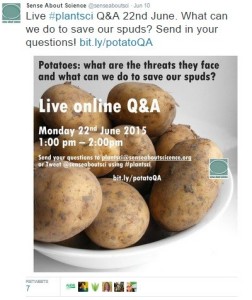 The online discussion, “Potatoes: What are the threats they face and what can we do to save our spuds?” will take place Monday 22nd June between 1 and 2pm (GMT+1). You can send in your questions on Twitter using the hashtag #plantsci, on Sense About Science’s Facebook page, or by emailing plantsci@senseaboutscience.org. Additionally, we are always keen to expand our Plant Science Panel community and expertise. If you are interested in joining please do get in contact!
The online discussion, “Potatoes: What are the threats they face and what can we do to save our spuds?” will take place Monday 22nd June between 1 and 2pm (GMT+1). You can send in your questions on Twitter using the hashtag #plantsci, on Sense About Science’s Facebook page, or by emailing plantsci@senseaboutscience.org. Additionally, we are always keen to expand our Plant Science Panel community and expertise. If you are interested in joining please do get in contact!